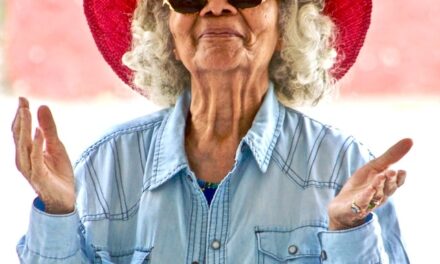On the eve of the 2000 Olympics, Sydney was suffering stage fright. There were ticketing problems, worries about transportation snafus and reports of tensions within the organising committee. One Canadian visitor likened arriving in Sydney to turning up at a party to find the host still in the bath.
In 1956, Melbourne had experienced a similar bout of self-doubt. Factionalism within the organising committee led to threats from the International Olympic Committee to wrench away the Games. For the youngest city ever to host the Games, staging such a mammoth international event was seen as a rite of passage. “For this Olympic period, the youth is called upon to perform adult functions,” noted The Age. Was it mature enough to cope?
Illustration: Dionne GainCredit:
In both cities, the Games were a triumph. Australia passed what it had looked upon as a national test. When Clive James wrote in the official 2000 Games program: “Mount Olympus, meet Sydney Harbour: you belong together,” he could also have been making a broader point. Australia is the natural home to major international sporting events, as the hosting, along with New Zealand, of the FIFA Women’s World Cup has underscored.
Nowadays, the country is self-assured enough to blow off an event like the 2026 Commonwealth Games without any self-punishing angst. With Alberta in Canada also pulling the plug on the planned 2030 event, it is the very notion of this legacy of empire that is now the subject of soul-searching rather than the capabilities of unwilling hosts. Certainly, this country no longer needs events such as the Olympics to act as a spur for its development, as was the case in the past.
Maybe this last point is underappreciated. But when Australia has hosted major sporting events, they have been transformational. Melbourne hastened the rollout of television. The ABC’s inaugural channels in Sydney and Melbourne both went to air in November 1956, just in time for the opening of the Games.
In the era of the White Australia policy, the arrival of so many international athletes and visitors provided a welcome burst of multiculturalism. When Melburnians were asked to open their homes to visitors because the city’s hotels could not cope, applications for the “Olympic hostess” scheme showed a preference for non-Anglo arrivals. As Clive James later observed: “After that, the White Australia policy had no chance of survival.”
Cathy Freeman carries the Aboriginal and Australian flags on a victory lap after winning the 400 metres at the 2000 Olympic Games in Sydney.Credit: Reuters
If Melbourne paved the way for greater racial diversity, then Sydney took the country further along the path of reconciliation. Though the opening ceremony began with a thrilling horse gallop to the sentimental strains of The Man from Snowy River, the Indigenous segment The Awakenings placed the long history of First Nations peoples at the heart of national storytelling.
Then came the entrance of Cathy Freeman, first to ignite the Olympic cauldron and later to win gold on the track. “Four hundred metres of reconciliation,” said then Labor leader Kim Beazley, a statement of multiple entendre which recognised the scale of her achievement and also how far there was still left to travel. At a time when the prime minister, John Howard, stubbornly refused to deliver a national apology to First Nations peoples, cheering on Freeman became a way of saying sorry. Both Olympics changed Australia for the better.
So what might be the legacy of the Women’s World Cup? Is it altering Australia as we speak? Anticipating the knock-on effects, Football Australia’s Legacy ’23 program set as its goal a 50/50 participation rate in soccer. Presently, it’s about 25/75 in favour of men. And doubtless future Sam Kerrs and Caitlin Foords are signing up with their local clubs.
But one of the great bonuses of the UEFA Women’s Euro Championship held last year in England, which was won by the Lionesses, was that men and boys also flocked to the women’s game. For English males of a certain age, professing love for women’s football became as faddish as baking sourdough bread. The road to the final at Wembley became a road to Damascus, thronged with male converts.
Even before the Lionesses became the first England football team to lift a major international trophy since Bobby Moore held aloft the World Cup in 1966, its captain Leah Williamson spoke of the wider ramifications of the “Euros effect”.
“What we’ve seen in the tournament already is that this hasn’t just been a change for women’s football but society in general. It’s about how we’re looked upon.”
Maybe Australia has already travelled further down this path, because of the serial success of the Diamonds, who this week lifted their fourth World Cup in five tournaments, the Hockeyroos, the Opals and the women’s cricket team, which dropped its moniker the “Southern Stars” in 2017 to boost gender equality in the game.
But let’s not be Pollyannas about this. Last year’s Euros did not crush British sexism any more than the Melbourne Olympics vanquished xenophobia or the Sydney Olympics ended prejudice towards First Nations peoples.
Still, they helped bring out meaningful change. Let us hope the Women’s World Cup will have an equivalent impact, not only in boosting female participation in football but by dislodging a few more bricks in the patriarchy.
Nick Bryant is a former BBC correspondent and the author of The Rise and Fall of Australia: How a Great Nation Lost Its Way.
The Opinion newsletter is a weekly wrap of views that will challenge, champion and inform your own. Sign up here.



